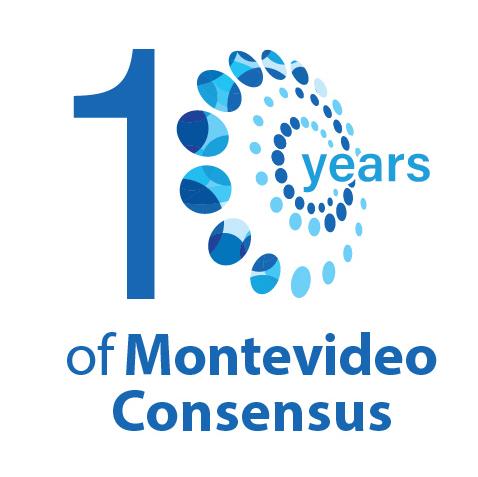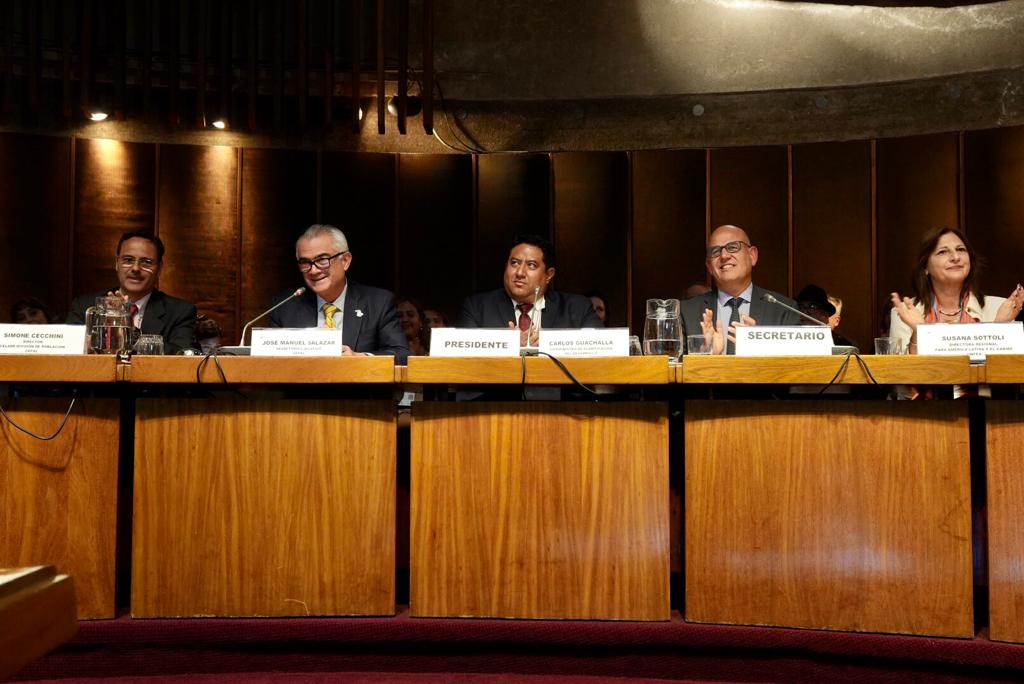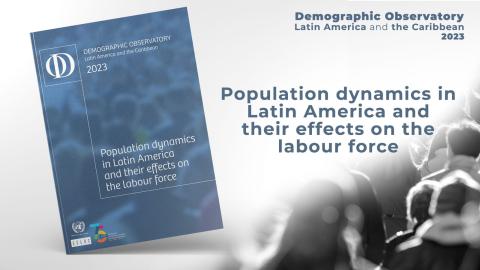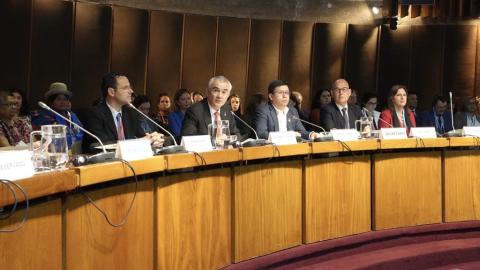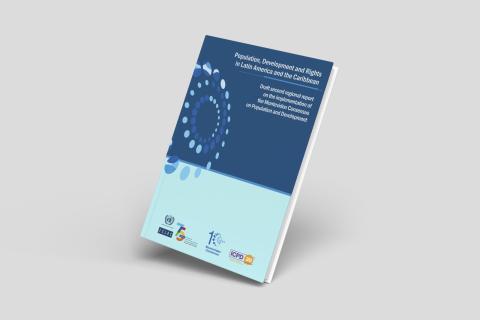The countries of Latin America and the Caribbean called for redoubling efforts to address the remaining challenges to full implementation of the Montevideo Consensus on Population and Development, during the closing session of the Fifth Meeting of the Presiding Officers of the Regional Conference on Population and Development, which was held on Tuesday, November 14 and Wednesday, November 15 at the main headquarters of the Economic Commission for Latin America and the Caribbean (ECLAC) in Santiago, Chile.
At the meeting – which brought together nearly 500 people on-site, more than 260 of whom were from civil society – the authorities reaffirmed that the Montevideo Consensus and the resolutions approved at the Regional Conferences on Population and Development in Latin America and the Caribbean are a road map for implementing the 2030 Agenda for Sustainable Development with a human rights-based approach, in order to leave no one behind.
The two-day event commemorated the tenth anniversary of the adoption of the Montevideo Consensus, the region’s most important intergovernmental agreement in this area and one of the most advanced instruments in the world for promoting the population’s rights within a sustainable development framework.
The meeting’s closing session was led by José Manuel Salazar-Xirinachs, ECLAC’s Executive Secretary; Susana Sottoli, Regional Director for Latin America and the Caribbean of UNFPA; and Carlos David Guachalla, Deputy Minister of Development Planning of the Plurinational State of Bolivia, the country serving as Chair of the Presiding Officers of the Regional Conference on Population and Development in Latin America and the Caribbean.
In his closing remarks, ECLAC’s Executive Secretary, José Manuel Salazar-Xirinachs, urged for promoting continuous efforts to achieve the Montevideo Consensus’s full implementation. He also highlighted that ten years on, the Consensus – along with the 2030 Agenda for Sustainable Development – is still a vital, and ever more relevant, tool for continuing to work towards the inclusion of all people in our region.
“We conclude this meeting with a renewed commitment and an ambitious work agenda for promoting equality and the rights of the entire population. Our attention and priorities must be centered on children and youth; older persons; women; migrant persons; indigenous peoples; Afro-descendent populations; people with disabilities; and LGTBIQ+ people. Only in this way will we be able to transform this highly unequal Latin America and the Caribbean,” he underscored.
ECLAC’s highest authority emphasized that the commemoration of the first 10 years of the Montevideo Consensus is the result of joint work between governments, civil society, international organizations and academia.
In that regard, he applauded each of the country delegations that participated and, through their voluntary national reports, shared the highlights of their public policy actions on population and development and stressed the importance of producing timely, disaggregated and quality evidence and statistical information.
“We have been able to build, perfect and give ourselves a mechanism for work and dialogue that maintains the same vitality, motivation and dynamism that it had a decade ago in the Uruguayan capital. Let’s continue to tend that flame around the Montevideo Consensus and the Regional Conference on Population and Development in Latin America and the Caribbean,” he affirmed.
Meanwhile, Susana Sottoli, Regional Director of the United Nations Population Fund (UNFPA), stated that “this meeting has allowed us to reaffirm the relevance of the Montevideo Consensus as a road map and contribution by this region on the path to making the vision of the Cairo Programme of Action a reality, which is to say, to moving towards an inclusive society that is respectful of the rights of all people, without exclusions.”
“The goal of the Consensus is clear: achieving rights and options for all people, with timely investments, policies that are forward-looking and adapted to the changes that are brewing, and proactive and dynamic leadership,” she added.
Deputy Minister Carlos David Guachalla stressed the need to strengthen the fulfillment of the priority measures on the rights of indigenous and Afro-descendent peoples with an emphasis on women and youth, intercultural health, access to land, food security, biodiversity, forests and climate change, among other areas.
“Latin America and the Caribbean reaffirms its commitment to the implementation of the Montevideo Consensus, 10 years after its adoption,” he declared.
In their agreements, countries called for enhanced fulfillment of the priority measures of the Montevideo Consensus through specific actions, adequate allocation of resources and the creation and strengthening of institutional mechanisms for its implementation and follow-up.
They also commended stakeholders – including governments, civil society organizations, the private sector, academia, and relevant movements and groups – for their contributions to the current regional review of the Montevideo Consensus, and emphasized the importance of sustaining and reinforcing existing partnerships and building new ones for its effective implementation.
Finally, accepting Colombia’s offer, the countries agreed that the Fifth Regional Conference on Population and Development in Latin America and the Caribbean will take place in that country at a date to be determined in May or June 2024.
